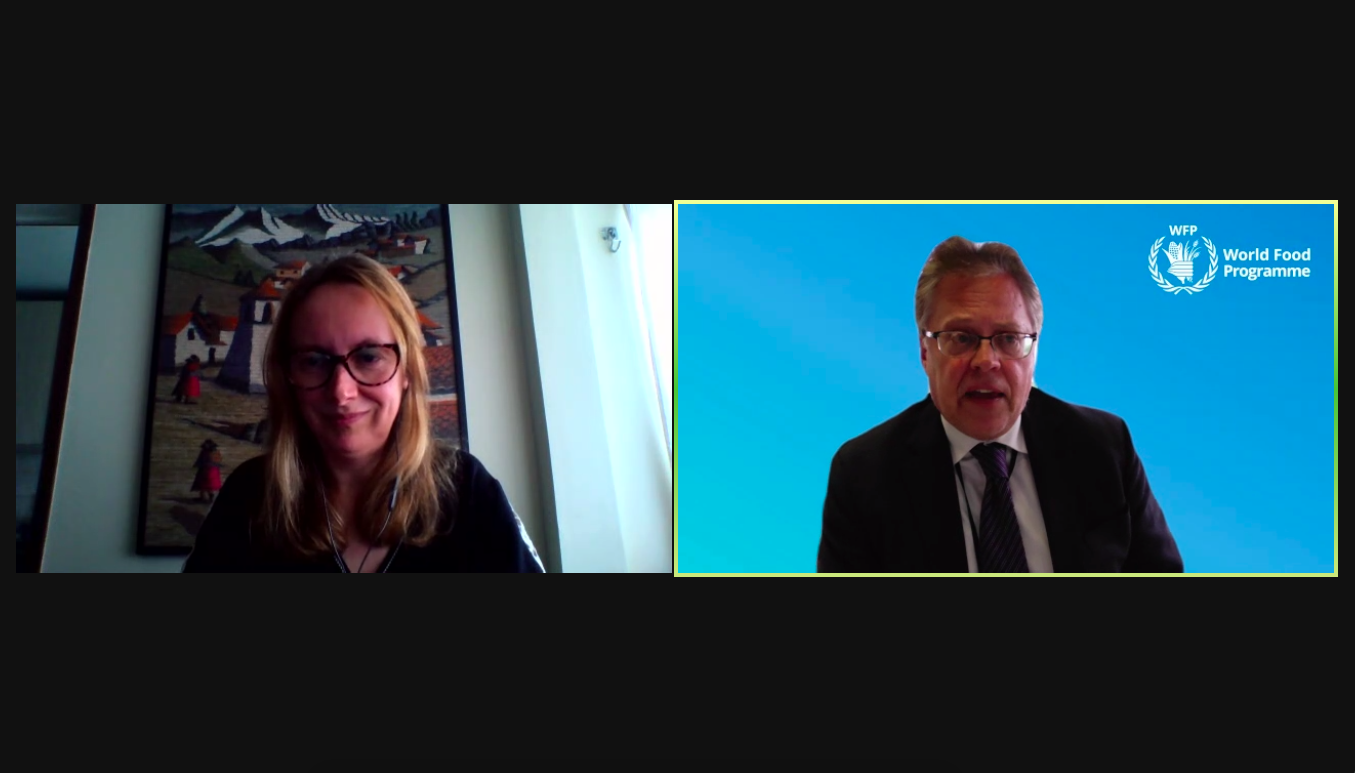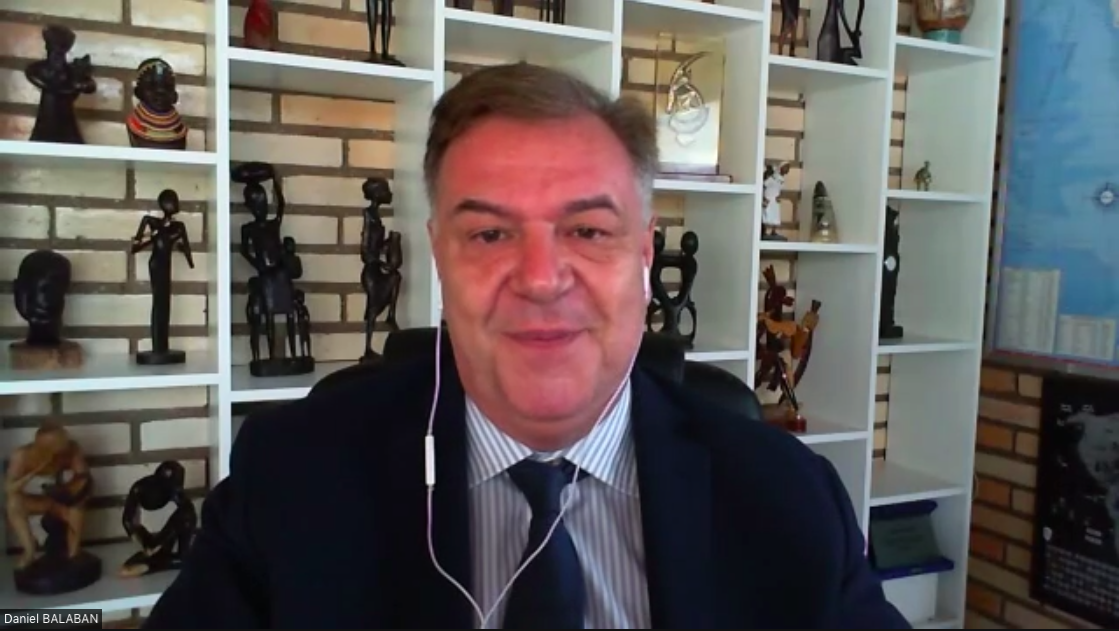
An online event held on Thursday, 4 November, brought together WFP representatives, directors, the WFP Centres of Excellence in Brazil, China and Côte D’Ivoire, and governments to share good practices and results achieved over the years. The event was also part of the celebrations to mark the 10 years of the WFP Centre of Excellence against Hunger in Brazil, which has been assisting countries all over the world using South-South Cooperation to build sustainable solutions to fight hunger.
During the opening session, David Kaatrud, Director of the WFP Programme, Humanitarian and Development Division, said that the work of the WFP Centres of Excellence has inspired many countries over the years, showing what can be made through local innovation and delivered though South-South Cooperation. “The South-South and Triangular Cooperation agenda is gaining momentum and we hope this momentum is sustained moving forward”, he added.
Ambassador Demétrio Bueno Carvalho, from the Brazilian Cooperation Agency, said that, since its inception, the Centre of Excellence has worked in collaboration with the government of Brazil to make important achievements in the field of international cooperation. “I also commend the Brazilian National Fund for Education Development in their commitment and for continuously sharing knowledge about the operations of the Brazilian school feeding programme”, he said.
The following section, moderated by Bruno Magalhães, from the WFP Regional Bureau in Dakar, highlighted the history and impact of the WFP Centres of Excellence. The first to speak was Daniel Balaban, Director of the WFP Centre of Excellence in Brazil. “It is an honour for me today to celebrate the 10 years of the Centre in Brazil, which is the result of a fruitful partnership between WFP and the Brazilian government. The Centre was a pioneer within WFP and combines the Brazilian experience and WFP’s expertise in supporting national governments through South-South Cooperation”, said Daniel Balaban. He also added that, throughout the years, it has become evident that it is not possible to reach the Sustainable Development Goals without cooperation.

Sixi Qu, Director of the WFP Centre of Excellence in China, presented the office’s main activities and operations, including current projects and cooperation initiatives. Also, the Director of the WFP Regional Centre of Excellence in Côte D’Ivoire, Patrick Teixeira, highlighted the collaborative work between the WFP Centres of Excellence in creating and improving school feeding programmes across the globe.
The final section of the event was moderated by Maria Lukiyanova, Director of the WFP Country Capacity Strengthening Unit and focused on experiences from countries and their history of working together with the WFP Centres of Excellence. The audience heard from the governments of China, Côte D’Ivoire, Brazil and Lesotho. The latter is the first country to use the Virtual Study Visit methodology to learn more about and be inspired by the Brazilian experience.
Peter Rodrigues, former Deputy Director at the WFP Centre of Excellence in Brazil and now a senior Partnerships Office at the WFP headquarters, delivered the closing speech focused on the future of the Centres of Excellence. He said that the Centres have an important role in channelling all relevant information that can help countries move forward in their agenda to end hunger. “We need to adopt a systems approach, and it became ever more evident at the United Nations Food Systems Summit that you can’t do it alone. We cannot achieve zero hunger or any of the Sustainable Development Goals if we do not work together”, he said.
You can learn more about the work of the WFP Centre of Excellence over the past 10 years here and a recording of the event is available here.
To learn more about the “Virtual Study Visit: Brazil” and request a virtual visit, please click here.




